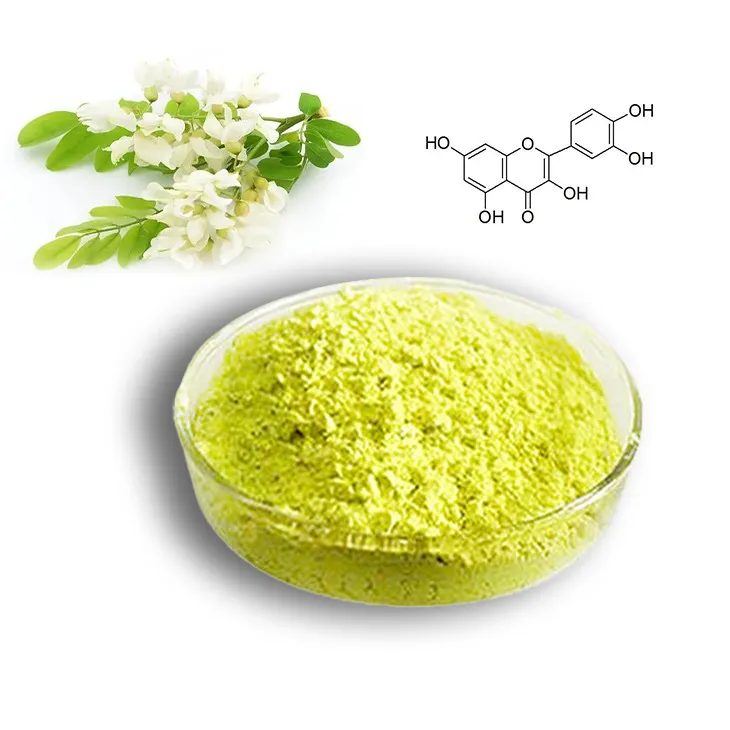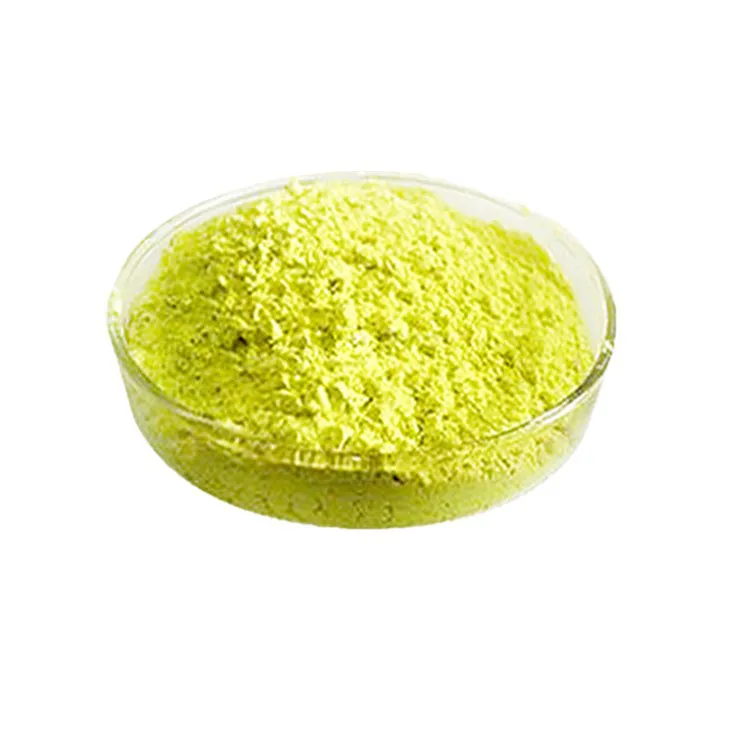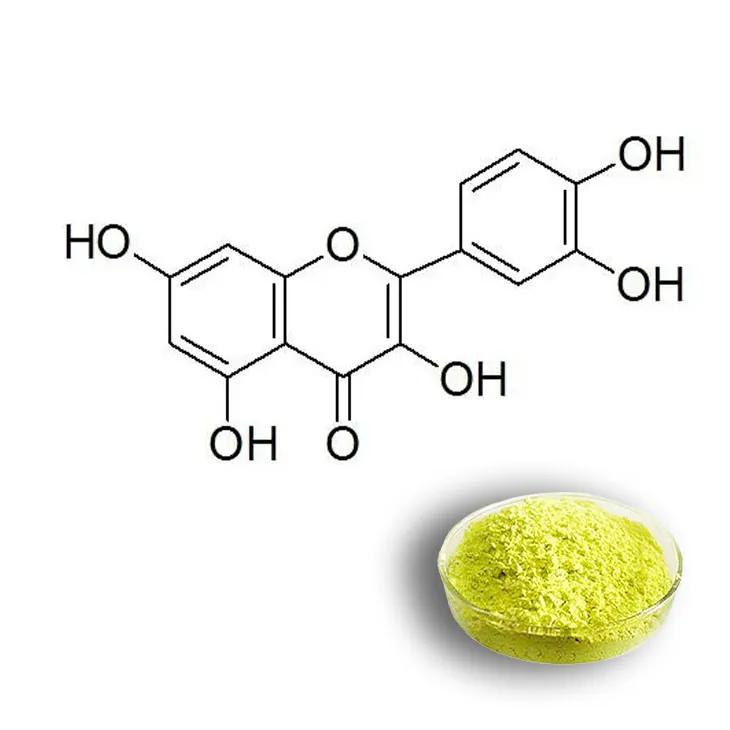- 0086-571-85302990
- sales@greenskybio.com
Active ingredient of quercetin.
2024-12-02

1. Introduction to Quercetin
Quercetin is a remarkable bioactive flavonoid that has drawn significant attention in recent years due to its numerous beneficial properties. It is widely distributed in the plant kingdom and can be found in a variety of plant - based foods, such as fruits, vegetables, and grains. This natural compound has been the subject of extensive research, uncovering its potential in multiple aspects of human health.

2. Antioxidant Capabilities
One of the most prominent features of Quercetin is its strong antioxidant capabilities. Antioxidants play a crucial role in maintaining the balance within the body by counteracting the harmful effects of free radicals. Free radicals are highly reactive molecules that can cause oxidative stress, which is associated with various diseases and aging processes.
Quercetin's antioxidant mechanism is based on its ability to donate electrons. By donating electrons, it can stabilize free radicals, preventing them from causing damage to cells, proteins, and DNA. This process helps to reduce oxidative stress and maintain the integrity of cells and tissues. For example, in vitro studies have shown that quercetin can effectively scavenge various types of free radicals, including superoxide anions and hydroxyl radicals.

3. Anti - Inflammatory Activity
Quercetin also exhibits significant anti - inflammatory activity. Inflammation is a natural response of the body to injury or infection, but chronic inflammation can lead to the development of many diseases, such as arthritis, cardiovascular diseases, and certain cancers.
The anti - inflammatory effect of quercetin is related to its interference with the activation of NF - κB, a key transcription factor in inflammation. NF - κB regulates the expression of many genes involved in the inflammatory response. Quercetin can inhibit the activation of NF - κB, thereby reducing the production of inflammatory mediators such as cytokines and chemokines. This helps to dampen the inflammatory response and protect the body from the harmful effects of chronic inflammation.

4. Role in Chronic Disease Prevention
Quercetin has been associated with reduced risk factors for chronic diseases. In the context of heart disease, it has shown potential in improving cardiovascular health.
4.1 Heart Disease
One of the mechanisms by which quercetin may contribute to heart disease prevention is by reducing endothelial dysfunction. The endothelium is the inner lining of blood vessels, and its proper function is crucial for maintaining normal blood flow and preventing the development of atherosclerosis. Quercetin can improve endothelial function by increasing the production of nitric oxide, a molecule that helps to relax blood vessels and reduce inflammation.
Furthermore, quercetin may also have beneficial effects on lipid metabolism. It has been shown to lower levels of LDL - cholesterol (the "bad" cholesterol) and triglycerides, while increasing levels of HDL - cholesterol (the "good" cholesterol). These effects on lipid profiles can contribute to a reduced risk of heart disease.

5. Cancer Prevention and Treatment
Quercetin has also emerged as a potential agent in cancer prevention and treatment. It can interact with various molecular targets in cancer cells, making it a promising candidate for developing novel cancer therapies.
One of the molecular targets of quercetin is kinases. Kinases are enzymes that play important roles in cell signaling pathways, and many of them are dysregulated in cancer cells. Quercetin can inhibit the activity of certain kinases, thereby disrupting the abnormal cell signaling pathways that drive cancer cell growth and survival.
Another important target of quercetin is transcription factors. By modulating the activity of transcription factors, quercetin can influence the expression of genes involved in cell cycle regulation, apoptosis (programmed cell death), and angiogenesis (the formation of new blood vessels). These effects can help to inhibit cancer cell growth, induce apoptosis in cancer cells, and prevent the spread of tumors.
6. Potential in Gut Health
The potential of quercetin in improving gut health is also an area of active research. The gut microbiota, which consists of trillions of bacteria residing in the gut, plays a crucial role in human health. Imbalances in the gut microbiota have been associated with various diseases, including obesity, diabetes, and inflammatory bowel diseases.
Quercetin may influence the gut microbiota composition. It has been shown to have prebiotic - like effects, promoting the growth of beneficial bacteria in the gut while inhibiting the growth of harmful bacteria. For example, some studies have found that quercetin can increase the abundance of bifidobacteria and lactobacilli, which are known for their beneficial effects on gut health. By modulating the gut microbiota, quercetin may help to improve gut barrier function, enhance immune function, and reduce inflammation in the gut.
7. Conclusion
In conclusion, quercetin is a versatile active ingredient with strong antioxidant, anti - inflammatory, and disease - preventive properties. Its multiple mechanisms of action make it a promising compound for promoting human health. However, further research is still needed to fully understand its potential and to develop effective strategies for its application in the prevention and treatment of various diseases. With continued research, quercetin may one day play an important role in personalized medicine and the maintenance of optimal health.
FAQ:
What are the main beneficial properties of quercetin?
Quercetin is a bioactive flavonoid with multiple beneficial properties. It has strong antioxidant capabilities, can interfere with the activation of NF - κB in anti - inflammatory activity, is associated with reduced risk factors for chronic diseases prevention, can interact with molecular targets in cancer cells for cancer prevention and treatment, and may influence gut microbiota composition for potential gut health improvement.
How does quercetin show its antioxidant capabilities?
Quercetin shows its antioxidant capabilities by donating electrons to stabilize free radicals.
What is the role of quercetin in anti - inflammation?
In anti - inflammation, quercetin can interfere with the activation of NF - κB, which is a key transcription factor in inflammation.
How is quercetin related to heart disease prevention?
Quercetin may help in reducing endothelial dysfunction in relation to heart disease prevention.
What are the molecular targets in cancer cells that quercetin can interact with?
Quercetin can interact with various molecular targets in cancer cells, such as kinases and transcription factors.
Related literature
- Quercetin: A Versatile Flavonoid with Potential Health Benefits"
- "The Antioxidant and Anti - Inflammatory Properties of Quercetin: A Review"
- "Quercetin in Cancer Prevention and Treatment: Molecular Targets"
- ▶ Hesperidin
- ▶ Citrus Bioflavonoids
- ▶ Plant Extract
- ▶ lycopene
- ▶ Diosmin
- ▶ Grape seed extract
- ▶ Sea buckthorn Juice Powder
- ▶ Fruit Juice Powder
- ▶ Hops Extract
- ▶ Artichoke Extract
- ▶ Mushroom extract
- ▶ Astaxanthin
- ▶ Green Tea Extract
- ▶ Curcumin
- ▶ Horse Chestnut Extract
- ▶ Other Product
- ▶ Boswellia Serrata Extract
- ▶ Resveratrol
- ▶ Marigold Extract
- ▶ Grape Leaf Extract
- ▶ New Product
- ▶ Aminolevulinic acid
- ▶ Cranberry Extract
- ▶ Red Yeast Rice
- ▶ Red Wine Extract
-
Tinospora cordifolia extract
2024-12-02
-
White Peony Extract
2024-12-02
-
Plantain extract
2024-12-02
-
Beetroot Powder
2024-12-02
-
Eyebright Extract
2024-12-02
-
Golden Seal Extract
2024-12-02
-
Black Garlic Extract
2024-12-02
-
Hericium erinaceus extract powder
2024-12-02
-
Nettle leaf extract
2024-12-02
-
Lemon Extract
2024-12-02





















